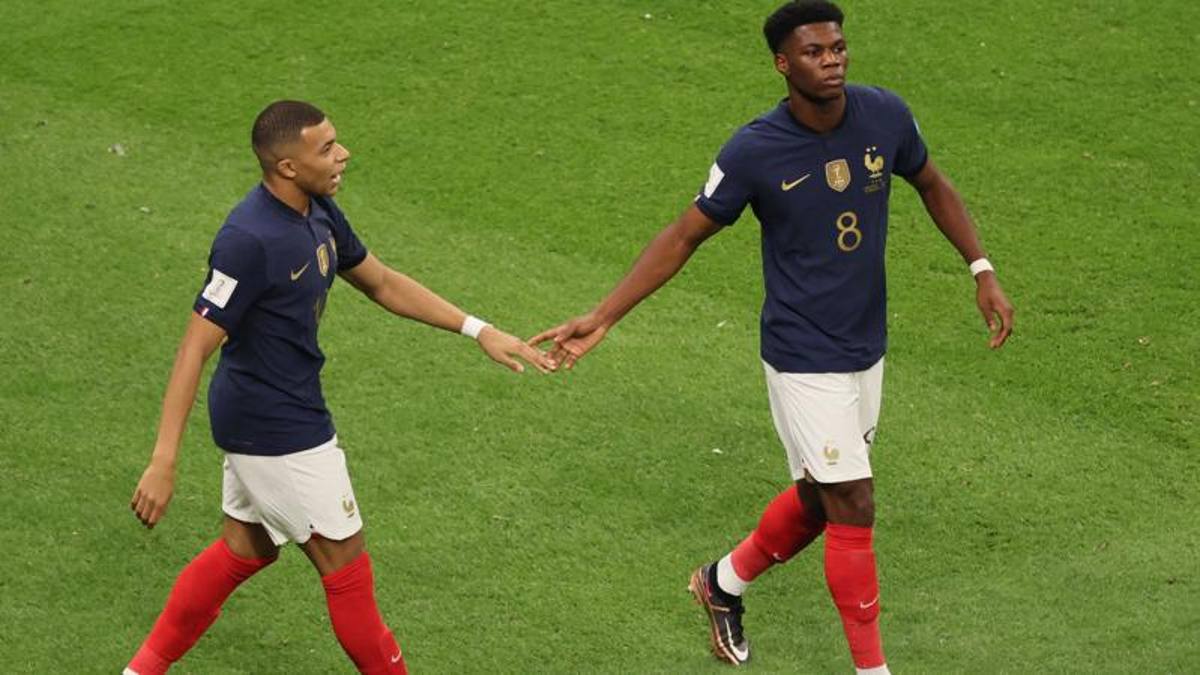With the Lions of the Atlas tomorrow will be a special challenge: many of France’s players were in fact born in Europe but from African parents
Tomorrow 13 French players will play against Morocco and consequently against their more or less deep African roots. Almost all of Didier Deschamps’ thirteen French-Africans were born and raised in France, almost all of them are proud of their origins, many retain their tastes and habits, in terms of food, music and more, but they are French and feel French. They will sing the anthem, the Marseillaise. The multi-ethnic base of the French national team is no longer news, it is considered natural, even if pockets of racism remain. Deschamps’ players themselves claim to be French, and already in previous World Cups they had rejected the scheme of African France. France and that’s it. The argument can then be reversed: several Moroccan footballers were born elsewhere. Goalkeeper Bounou in Canada, in Montreal. Cheddira in Italy, in Loreto. Some in Holland and so on.
jay-jay
—
It is curious however that Morocco, the first African national team to reach the semi-finals of a World Cup, runs into the France of the French with African ancestry. “This World Cup semi-final – said Jay-Jay Okocha, Nigeria’s unforgettable dribbler in three World Cups – resembles an African Cup of Nations final”. At Qatar 2022, Morocco aside, Africa has already taken some satisfaction: in the first phase, Tunisia beat France and Cameroon defeated Brazil. They let Senegal and Ghana down. The multi-ethnic French national team comes from afar, Raoul Diagne was the first black player to play for France in the 1930s. He came from French Guiana, one of France’s Overseas Territories, which still exist and are another football reservoir. In the Territories scattered across the oceans, four of Deschamps’ squads in Qatar have more or less distant origins. They are Varane, Areola, Coman and Marcus Thuram, the son of Lilian, world champion in 1998.
the big picture
—
It is estimated that four million French-African citizens live in France, including the overseas territories, but perhaps the figure is on the low side. According to some analysts, 40 percent of the French population in the last three generations – a period of about half a century – would have one or more components linked to Africa. The phenomenon can be explained by emigration from the former French colonies in Africa. Over the centuries, France has ruled a boundless empire, between Asia, Africa and America. The list of French-speaking African countries, states in which French is still spoken, is very long: Cameroon, Ivory Coast, Mali, Algeria, Tunisia, Morocco itself. About 150 million Africans speak or understand or read French. The language bond remains strong, despite the fact that the colonies no longer exist. In the twentieth century, Morocco was a French protectorate for a long time and only became an autonomous state in 1956. In Algeria, the war of independence from the French lasted from 1954 to 1962 and cost almost 30,000 deaths. Modernity has shifted the question to the field of the economy, Morocco is today the African country to which France diverts the largest number of investments.
clear choices
—
Kylian Mbappé has a father from Cameroon and an Algerian mother. “I’m proud of my African origins-he said years ago-. One of my role models was George Weah (former AC Milan striker, now president of Liberia, ed.)”. Mbappé could have played for Cameroon or Algeria, but he chose France without hesitation, the country in which he has always lived and of which he feels a part to the core. Emmanuel Macron, the President of the Republic, has involved him in more than one initiative. Another theme is the difficulties of Africa, at every level. A few months ago the French Arséne Wenger, former Arsenal coach, member of the Fifa technical commission, expressed himself thus on Mbappé: “he was trained in Europe. If he had been born in Cameroon, he would not have become the champion and today”. Slippery phrase, we believe that someone like Mbappé would have emerged all the same, but perhaps Wenger meant that Africa is a huge reservoir of talent, partly wasted for the most varied reasons, lack of structures and more. It happens that African countries try to recover so much football wealth. Cameroon, for example, tried to convince Aurelien Tchouameni, the new Kanté in midfield. It happened at the beginning of 2021, when Tchouameni was still playing for Monaco. The boy froze the Cameroonian leaders: “I care about the French flag”, he explained in an interview. This summer, before moving to Real, he flew to Cameroon to visit his relatives in Bana, in his family’s places of origin.
December 13th – 3.01pm
© breaking latest news
